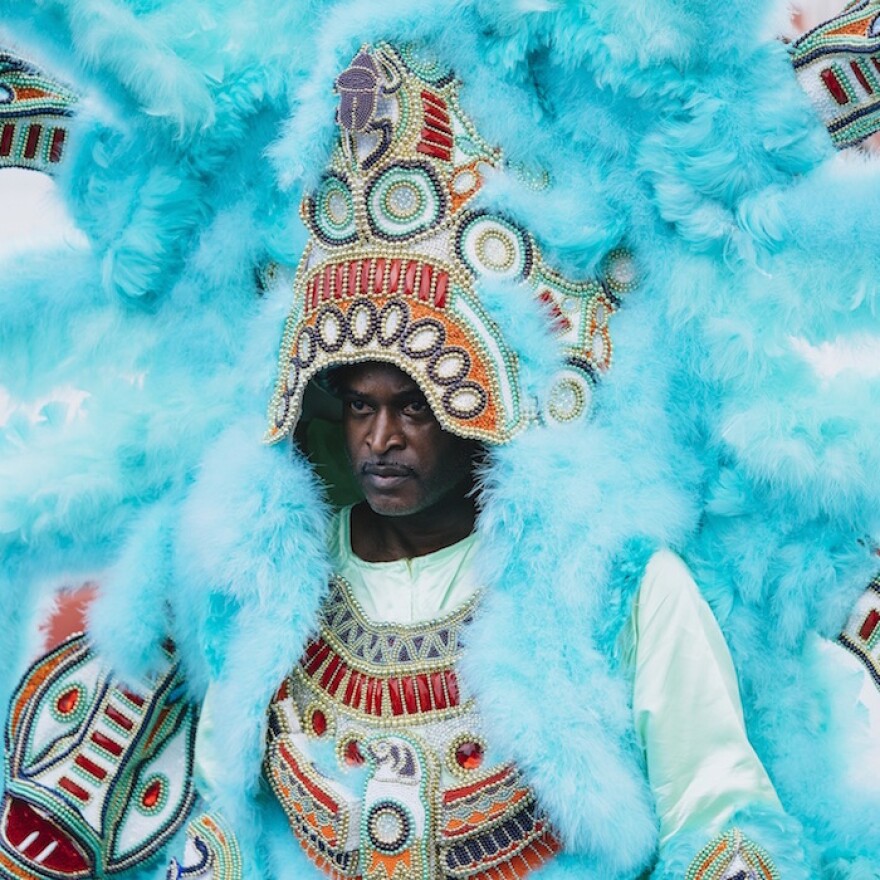Shaka Zulu: I was in a masking tradition, which is the African stilt dancing tradition from my father, and that's our family tradition, before I was in New Orleans masking tradition. The history of stilt dancing in Africa was really started from the Mali Empire, I guess. So when the Mali Empire split up into these countries, each country took the entity of it and created its own folklore. So, you had some that came out for baby births, some came out for death. You had some that, when you had dry season, you wanted the stilt dancer to come out to bless the grounds, to bring rain. In African tradition, you gonna always have a mask on, right? My dad came up with this tradition of stilt dancing called Free Spirit. So, we just concentrated mainly on the African origin of the tradition and just carried that through. But once we created the Free Spirit stilt dancer, we incorporated stilts into the New Orleans masking tradition. I thought I should push the envelope a little bit and mask fourteen feet in the air. I thought that would be a powerful statement to make.
[music]
SZ: I started Golden Feather 2018. Being chief of a tribe is a very, very tough responsibility because one thing about this tradition is the chief represents that specific neighborhood. The chief teaches you the history of the tribe. It teaches you how to soul. You also are responsible for all of those folks’ personalities, what they do outside of the tribe, because they're representation of you. The suits are the most important part of it. You’re taking a year-long process in hand beading and sewing the suit.
[music]
SZ: When you hit the streets, that's what people are judging you by. You know, the craftsmanship, the work that you put into the suit, because that's your claim to fame, should I say. Most of my suits come in a dream. I see it before I actually start designing and beading it. But most of my inspiration on building suits are, of course, you know, I'm so passionate about African tradition; so, it's gonna be something African, or it can be, you know, something that I'm passionate about and want to bring attention to.
[music]
SZ: My everyday life is Africa, you know, so coming from an African tradition into understanding a masking tradition, for me, it was just such an easy transition because both of those traditions are intertwined academically, spiritually, culturally, and physically, and that's why we came up with Voices of Congo Square. Since all of those traditions came out of Congo Square, we wanted to have a theater production that told that story of the history of the Black Carnival traditions of New Orleans on the stage through music, song, and dance. We do what we do to remain true to who we are as a people based in the city that we call New Orleans today. So now, you know, I'm really about training the next generation to come into this culture with an economic approach to it as well. You're practicing it, you're doing it correctly, you're preserving it, but you're also using it as a way that you can sustain your life with it.
To hear the full program, tune in Saturdays at 5 and Sundays at 6 on WWNO, or listen at americanroutes.org.



